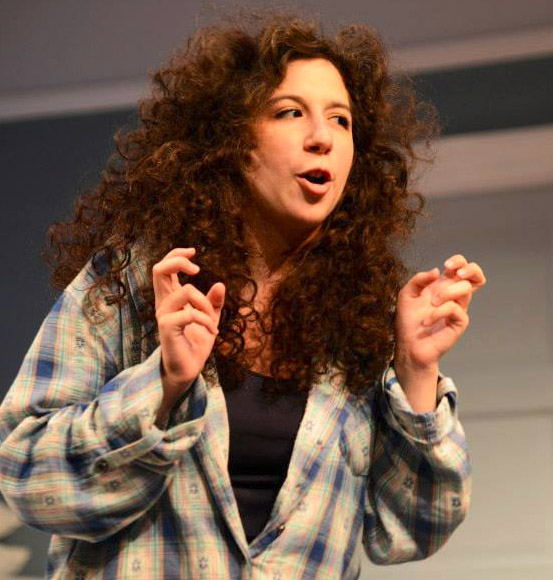One of my tutors at university once said that the test of a piece of literature say, or an article in the media, being offensive is not that someone is offended for there are surely people who can find offence in almost anything. No, the test of offence is in the intention of the writer or speaker. Joshua Harmon’s challengingly titled play, Bad Jews, would certainly qualify for defense along those lines. A ‘bad Jew’ in sense the play uses the term is one who isn’t quite Jewish enough in some of their observations of Jewish law and practices. Pity then, poor Liam, an atheist Jew who fails to turn up on time for grandfather Poppy’s funeral, who gets both barrels of cousin Daphna’s ire as she inveighs against his lack of Jewishness.
This is a bitter comedy about tradition, culture and identity, but what sets it apart from the usual fare of young adults looking to set their own cultural agenda is that it is not inter-generational. The two main combatants in the battle of minds and wills are cousins of the same age. For Daphna (or her Americanized persona Diana), her Jewishness is at the core of her identity, whilst for Liam, who wants to marry all-American girl, Melody, his Jewishness is a fact of life, but not a guiding principle.
What lifts this play from worthy mediocrity is the passion of the characters. No holds are barred, as perceived faults are vitriolically dredged up. In this the author is well served by a strong cast and sure handed directing. Michael Longhurst perfectly judges the ebb and flow of the pulsating emotions as ownership of the grandfather’s necklace, a family treasure brought back from the concentration camp where he had kept it under his tongue for the duration of his incarceration, is contested.
Jenna Augen is perfectly at home in the skin of would-be Israeli émigré, Daphna and brings out with great clarity this complex character’s numerous facets; emotional strength, vulnerability, snobbishness, ruthlessness – to name but four. Ilan Goodman’s well-matched antagonist equally brings a steely determination and emotional range to the young man struggling to escape the oppressive weight of tradition whilst staying true to the legitimate demands of family ties. Joe Coen’s Jonah, on the other hand, nicely balances the conflicting demands of support for his brother and cousin. The final revelation of his undemonstrative familial ties makes for simple, but powerful theatre. Trying to stand aside from the family feuding is good hearted, uncomplicated Delawarian, Melody who is given, ultimately, the backbone of a fighter by Gina Bramhill.
Richard Kent’s effective and stylish set and Adrienne Quartly’ subtle sound design (including the faintest of distant sirens) set the scene in New York.
With this powerful comedy the Ustinov has scored again with a play of substance and quality. ★★★★☆ Graham Wyles 08/08/14


